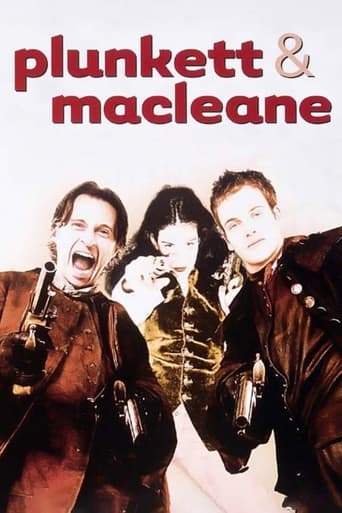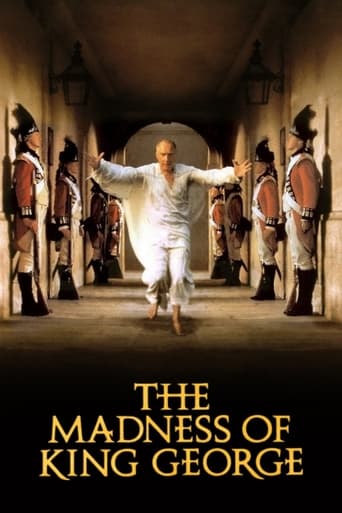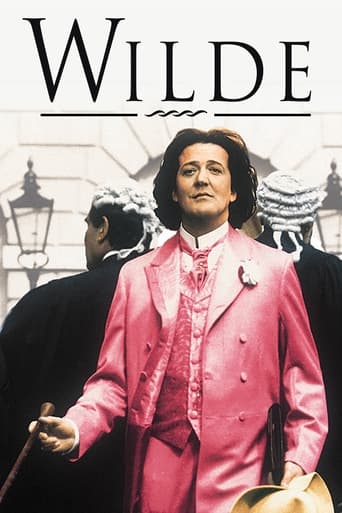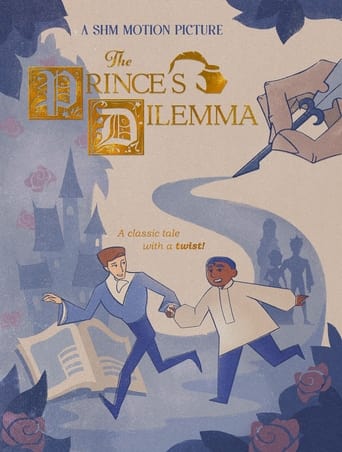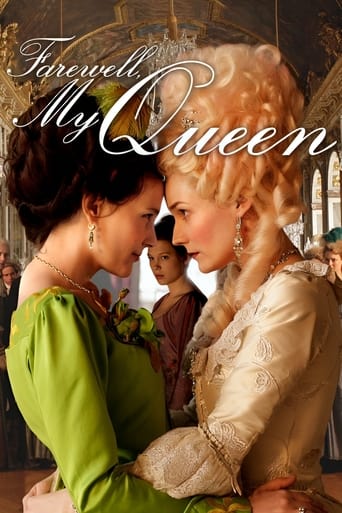

Farewell, My Queen (2012)
A look at the relationship between Marie Antoinette and one of her readers during the final days of the French Revolution.
Watch Trailer
Cast


Similar titles
Reviews
Benoît Jacquot's Berlin Golden Bear contender in 2012, FAREWELL, MY QUEEN taps into a beguiling re-imagination of Marie Antoinette's (Kruger) impassioned affinity with Gabrielle de Polastron, duchess de Polignac (Ledoyen), on the eve of the French Revolution in 1789, without delving into more scandalously graphic details of their lesbian relationship, and unlike Sofia Coppola's palatially sumptuous MARIE ANTOINETTE (2006), Jacquot complies to Chantal Thomas' source novel and the film narrates entirely from the viewpoint of the Queen's young servant Sidonie Laborde (Seydoux), who often reads for her, which signifies that preponderantly viewers are invited to get a peep of the back rooms of Palace of Versailles for a change.Needless to say, the royal mise-en-scène has its sublime allure to those addicted to the period grandeur, often in passing glimpses wherever Sidonie drifts around in her fretful steps, this proves to be a cunningly economical stratagem of shifting the focus to the characters' mood swings when an impending uprising is in the pipeline. All hell broke loose therein, but not Sidonie, she remains inexorably loyal to Marie Antoinette after has been privileged with a tête-à-tête by the Queen in person, which the latter confides to her the affection she feels for Gabrielle. It makes her feel special about herself, it also thrills her sexually, to be granted such a honor which is out of her rung, she becomes the closest friend of the Queen of France, what more can a girl of her place want?Given the frenzied context, Sidonie barely has time to relish the joy, she puts her back into fishing latest information of the revolution, voluntarily running errands for the Queen, including waywardly barging into Gabrielle's boudoir and glaring her naked body with a trenchant incisiveness of jealousy and disparagement. But what does her "specialness" really mean to the Queen? When Marie Antoinette bestows her the ultimate mission, it hits her like a sledgehammer, inwardly, she might have a faintest hope that Marie Antoinette would indulge her like a forbidden fruit, in a more peaceful time, maybe, but not at that crunch, when monarchy is hanging by a thread, all she can do is to silently accept her fate as an honored decoy, the last thing she could ever do for her Queen, then for the first time in her life, she wallows in her moment of superiority, however facile and ominous it is, and the story just ends there, when she forever departs from Marie Antoinette's life, she, Sidonie Laborde, becomes a nobody.Admittedly, the film feels foreshortened, even myopic when considering such a sensational commotion is undergoing, there must be something more theatrically pressing can be projected on the screen (even Marie Antoinette's own story has many colorful facets), but in this unapologetically feminist reconstruction, Jacquot gallantly attempts to deconstruct the undertow of this particular situation (from a servant's perspective) fraught with attraction, disaffection, perturbation and self-deception, exclusively among women from different strata.Léa Seydoux gives a patchy incarnation of Sidonie, often casts her customarily inscrutable gaze masked with an air of stuck-up insouciance to the camera, but short in supply when a young maiden's ingenuousness is demanded, she seems more impenetrable than all her more worldly seniors, which considerably deflects Sidonie from being a queen-stuck virgin as she is. Diana Kruger, as her antithesis, contrives a much more rounded interpretation of the Queen, a mellow amalgam of personable femininity and fickle monarchist, an incorrigible romantic and a well- adjusted planner, that's only garnered from her fitful screen-time, and leaves us hot to trot to envision what she would be doing before her ill-fated sign-off. Perhaps a revisit of Coppola's work can quench the yearning, or otherwise.
I did see this movie not long ago and in my personal opinion, it is not boring at all. In fact I see it as quite exciting because it is one of the few films that comes very close to the historical Marie-Antoinette and her real nature as a human being. I also did see the other film of Coppola and did not agree with it at all cause I thought it to be way too superficial and only showing one side of a very complex historical personality. In fact I was very annoyed and mad about it because it is inexcusable to see such a careless handling of such an interesting and disrupted character like the last French Queen.Actually I honestly am quite surprised as to how few movies actually give justice to the real historical personality and how few details of her biography are told. Reality is never that simple and never as one-sided, and it would be wrong to only show the Queen as someone who loved luxury and ruthlessly spent all the taxmoney of the people, uncaring if they were hungry or not. Coppola completely leaves out the element that luxury often only is a way to evade and to distract oneself of the real problems and important matters of life. One of the important issues in these cases to have a son and to make the dynasty live on, which was the Queen's first "official" task - and this task caused her unhappiness for quite a long time cause her husband did have a phimosis. The other important issue was loneliness, and yes I firmly do believe that she must have been terribly lonely in such a place like Versailles in which there were not many good and decent people to have as friends. She probably would have needed someone like Sidonie, sadly she did not exist.All of this was never mentioned in the Coppola adaptation. "Les Adieux à la Reine" comes closer to reality because it shows Versailles the way it supposedly was back then. It also shows the queen as a real disrupted human being with real emotions like regret and abandonment, and someone who was able to love and being loved in return (not like a lot of "fake" people nowadays). I missed that a lot in the other one which in my opinion gives a totally wrong image of the Queen as the human being she was. Also Coppola did not show the heavy change she went through in the last days of the revolution when she woke up to reality and became considerate, dutiful and thoughtful as well (too late as historians would probably say and it didn't save her from being killed). I give this film 8 of 10 stars because I actually think that the ending sucks somewhat because Sidonie leaves and never comes back. I know the ending wanted to add to the subtility overall but in my eyes that simply didn't work very well. 8 of 10 because I thought the acting to be very impressive and the characters well-described, and plus I think there is a lot of tactfulness to the character development and historical correctness. I think it definitely has the necessary requirements to become a classic overall.
Written and directed by Benoît Jacquot and based on the novel by Chantal Thomas, Farewell, My Queen explores the death throes of the French monarchy over a period of three days in July, 1789. Set in the Palace of Versailles at the beginning of the French Revolution, Sidonie (Lea Seydoux), known as the reader for Queen Marie-Antoinette (Diane Kruger), is responsible for selecting books and reading them aloud to the queen. Because of her closeness to the monarch, she is able to act as a spy, securing information about events taking place inside and outside the palace, pressing selected servants for information, and eavesdropping on conversations to gather the most up-to-date gossip to pass along to Marie.The film is seen from Sidonie's point of view, a vantage point that illuminates the sharp social divisions inside the palace with the servants living in crowded rat-infested quarters, and the royals dwelling in opulent accommodations. Lea Seydoux delivers a powerful performance as the devoted servant of the queen, conveying an air of mystery about who she really is in a way that adds to her allure. Kruger portrays Marie-Antoinette as sensual and hedonistic and there is a hint of more than Platonism in the way she interacts with both Sidonie and the Duchess de Polignac (Virginie Ledoyen), a relationship that tests Sidonie's loyalty.On the morning of July 15th, news spreads rapidly that the king had been awakened at two in the morning. No one knows the reason, but fear spreads throughout the court. If the king is ill, who will protect those totally dependent on the nobles who control their lives? It is soon revealed, however, that the king is not ill, but that a mob has stormed the Bastille and a revolt has begun against the aristocracy. Little information is available. Rumors abound based only on conversations whispered in the hallways and the servant's quarters. When the King travels to Paris and the Queen decides against an escape to Metz, an aura of inevitably descends on the Palace and the nobles begin to abandon ship, competing for places on the coaches seeking a safe haven.Antoinette makes every effort to continue with business as usual, looking at magazines to admire new styles and colors for the coming season, paying scant attention to the fact that her name is number one in a list of 300 targets for the guillotine. Fearful of losing her only connection to the world, Sidonie is willing to risk the ultimate sacrifice if it is in the queen's best interest. Even though Farewell, My Queen is historically questionable and may hold us at arms length emotionally, it provides a fresh view of events that we know about only from history books or stuffy costume dramas.Jacquot captures the authenticity of time and place and also the human side of the power struggle. Unfortunately, the film pays little attention to the issues that led to the revolt, never mentioning the abuse of power by the monarchy. Indeed, the Revolution serves only as a backdrop for the story which is more about seduction, loyalty, and betrayal than social upheaval. Rather than making a statement that is relevant for our times, the intricacies of sexual intrigue and love triangles dominate the film, titillating rather than persuading, and making the goings on difficult to care about.
The French Revolution kicked off in 1789, not too long after America's ended. Fortunately for King George III, he lived in London and not Philadelphia or Boston. King Louis XVI and his wife Marie Antoinette were not so lucky; their revolution sprouted on their doorstep. The four days which Farewell, My Queen covers, 14-17 July 1789, were dark days indeed for the French monarchy and their noble hangers-on. Nobody leaves Versailles because it is too dangerous, the Bastille is stormed, and there are pamphlets floating around Paris of 286 named individuals whose heads the revolutionaries wish to chop off. The number one name on that pamphlet is Marie Antoinette (Diane Kruger).Unlike Sophia Coppola's 2006 version of this story, Marie is not as young as she once was. She misses her youth but appears to have found company with the Duchess Gabrielle de Polignac (Virginie Ledoyen). Scandalous rumors circulate not only throughout the palace of the extent of their liaisons, but also through the rest of France. Many believe the Duchess is just as responsible for the people's miserable state of affairs as are the King and Queen. In fact, her name is number three on the guillotine wishlist. However, both of these ladies are merely supporting characters in Benoit Jacqot's version; their story is told through the eyes and ears of the queen's loyal reader, Sidonie Laborde (Lea Seydoux). Sidonie is at the queen's beck and call whenever she feels in the mood for a play or a novel to be read to her. She does not have a more devoted subject; Sidonie absolutely worships the queen is all she does or could do. The queen recognizes the true adoration in Sidonie's eyes and so employs her as a sort of sounding board and confidant; not to the extent of Duchess de Polignac's level of intimacy, but nonetheless, Sidonie is one of the closest servants to the queen. The other palace servants take note of this and Sidonie appears to be among the more higher-ranking servants. Even downstairs in the servant's quarters there is a caste system of hierarchy and rank. Because Sidonie is extremely well read and discreet on top of it, she is quite the capable spy who can ferret out closely held information when events start to pick up the pace outside the palace walls. Sidonie knows which servants to press for info, whose palms need greasing, and in which particular dark corner of the room to stand to eavesdrop on conversations to acquire the most up to date gossip on how the queen is feeling, who woke the King up in the middle of the night, and how close the revolutionaries are getting to the outside walls.Unfortunately, what sounds like deep palace intrigue and an interesting history lesson in the French Revolution mostly lands with a thud on screen. Marie Antoinette is seen a few times and the Duchess hardly at all. A movie which spends a lot of time discussing the truth and falsehoods of their relationship only puts them in the same room together once. Sidonie holds your interest as she scurries back and forth trying to please the queen but her limited view of the action also limits the audience's view. As the situation becomes more pressing and hectic, the camera almost latches on to the back of Sidonie's neck as she runs down the long, slick hallways of Versailles. Towards the end, the camera work was becoming a bit distracting. One should not notice the camera's movements too much but after another jerky movement to the right and back left or another awkward close-up, I wished they would just place the camera on a tripod and let it be. What the cinematographer may have thought was innovative and eye- catching was more irritating and a case of needless showboating.The art and costume directors must have had a field day though. Any film set in 1789 Versailles probably has these types of creative personnel lined up down the block raising their hands to get a shot at it. While Farewell, My Queen works on an aesthetic level to produce a great looking period piece (minus the camera), this film is only for the Francophile. Those who relish any story of Marie Antoinette will probably love this movie no matter what. There is a lot of name dropping and whoever remembers their pre-Napoleon French history class from college may smile and nod as name after name is casually mentioned in conversation. For those who are a bit more discerning in their historical fiction though, you will not take very much away from this film you do not already know. Go enjoy some French wine instead or pick up a copy of A Tale of Two Cities to quench your French Revolution itch.





